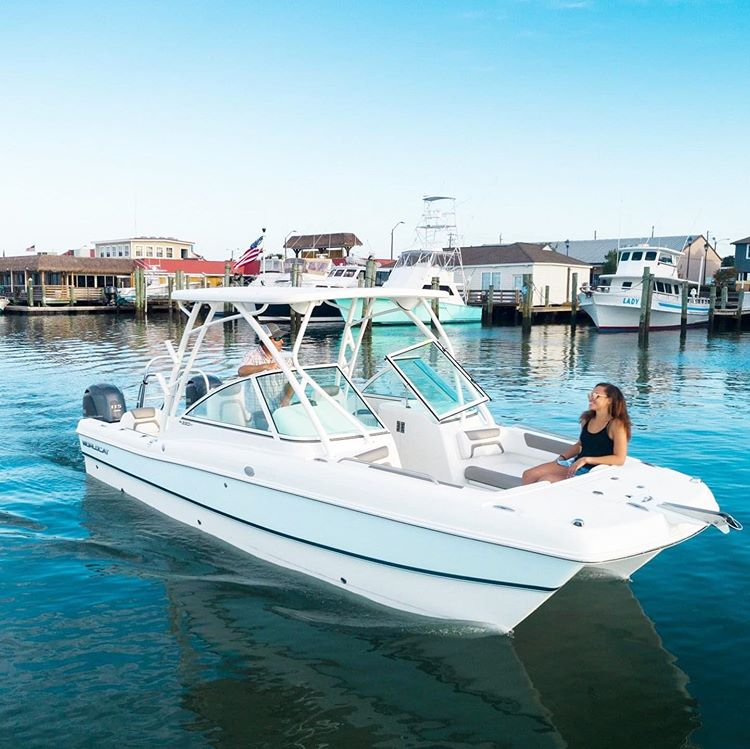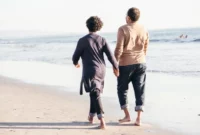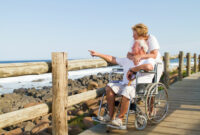Educational trips for seniors offer a unique blend of learning and leisure, opening doors to new experiences and enriching lives. These journeys aren’t just about sightseeing; they’re about engaging with different cultures, delving into history, connecting with nature, and fostering personal growth. Whether it’s a historical tour through Europe, a cultural immersion in Asia, a nature expedition in the Americas, or a culinary adventure across the globe, educational trips cater to diverse interests and physical abilities, ensuring a rewarding and enriching experience for every senior traveler.
This exploration delves into the various aspects of planning and undertaking these enriching adventures, from selecting suitable trip types and reputable tour operators to managing budgets and prioritizing health and safety. We’ll cover practical tips for engaging seniors in the learning process, ensuring a fulfilling and memorable experience from start to finish, leaving participants with lasting memories and newfound knowledge.
Types of Educational Trips for Seniors
Educational travel offers seniors a unique opportunity to engage in lifelong learning, explore new cultures, and create lasting memories. These trips cater to diverse interests and physical abilities, providing enriching experiences tailored to the needs of older adults. Careful planning, considering both the intellectual stimulation and the physical aspects, is key to a successful and enjoyable journey.
Historical Tours
Historical tours provide seniors with the chance to delve into the past, exploring significant historical sites and events. These trips often involve guided tours of museums, historical landmarks, and battlefields, offering in-depth insights into specific historical periods or figures. For example, a tour focusing on ancient Rome might include visits to the Colosseum, the Roman Forum, and the Pantheon, providing a rich understanding of Roman civilization. Learning opportunities extend beyond simple sightseeing, encompassing lectures, discussions, and interactions with local historians and experts. The physical demands vary greatly depending on the specific tour. Some tours may involve significant walking, while others may incorporate more accessible transportation options like buses or trams. Accessibility features, such as wheelchair ramps and accessible restrooms, should be confirmed beforehand.
Cultural Immersion Trips
Cultural immersion trips aim to provide seniors with a deeper understanding of different cultures through direct engagement. This might involve attending local festivals, participating in traditional crafts, learning basic phrases in the local language, or staying with local families. A trip to Japan, for instance, could involve visiting ancient temples, participating in a tea ceremony, and learning about Japanese calligraphy. The learning opportunities are multifaceted, encompassing the arts, cuisine, traditions, and social interactions. The physical demands are moderate to high, depending on the activities involved. Some cultural experiences may require walking long distances or participating in physically demanding activities. It’s essential to choose a trip that aligns with the participant’s physical capabilities and to inquire about accessibility features.
Nature Expeditions
Nature expeditions provide seniors with opportunities to connect with the natural world, exploring national parks, wildlife reserves, and other natural environments. A trip to Yellowstone National Park, for example, might involve guided hikes, wildlife viewing, and educational talks about the park’s geology and ecology. These trips offer unique learning opportunities about natural history, conservation, and environmental sustainability. The physical demands can range from low to high, depending on the specific activities. Some expeditions may involve gentle walks, while others may require more strenuous hikes. It is vital to assess the physical capabilities of the participants and choose a trip with appropriate difficulty levels. Accessibility should be considered, ensuring trails are suitable for wheelchairs or other mobility aids where necessary.
Culinary Experiences
Culinary experiences focus on the art and culture of food, allowing seniors to explore different cuisines and cooking techniques. This could involve visiting local markets, attending cooking classes, and enjoying meals prepared by renowned chefs. A culinary tour of Italy, for instance, might include visits to vineyards, cheese factories, and pasta-making workshops. The learning opportunities encompass food history, regional specialties, and cooking techniques. The physical demands are generally low to moderate, with the main activities involving walking, tasting, and participating in hands-on cooking sessions. Accessibility considerations should be checked, ensuring that venues are accessible to those with mobility issues.
| Trip Type | Example | Learning Opportunities | Physical Demands & Accessibility |
|---|---|---|---|
| Historical Tours | Ancient Rome | History, architecture, archaeology | Variable; walking may be involved; check for accessibility features. |
| Cultural Immersion | Japan | Arts, traditions, language, social interactions | Moderate to high; walking and participation in activities; check accessibility. |
| Nature Expeditions | Yellowstone National Park | Natural history, ecology, conservation | Low to high; hiking ability varies; check trail accessibility. |
| Culinary Experiences | Italy | Food history, regional cuisine, cooking techniques | Low to moderate; walking and some hands-on activities; check venue accessibility. |
Planning and Logistics
Planning a successful educational trip for seniors requires meticulous attention to detail, ensuring a comfortable, engaging, and enriching experience. Careful consideration of itinerary design, tour operator selection, and essential packing ensures a smooth and enjoyable journey for all participants.
Thorough planning minimizes potential stressors and maximizes the educational and social benefits of the trip. This includes pre-trip briefings, on-site support, and contingency plans for unforeseen circumstances. Effective communication with participants throughout the planning process is crucial.
Sample Itinerary: A Week-Long Educational Trip to Colonial Williamsburg
This itinerary focuses on a hypothetical week-long educational trip to Colonial Williamsburg, Virginia, offering a blend of historical immersion and leisure. Adjustments can be made based on the seniors’ physical capabilities and interests.
Day 1: Arrival in Williamsburg, check-in to hotel (consider a hotel with accessible rooms and amenities). Afternoon: Guided walking tour of Colonial Williamsburg, focusing on key historical sites at a comfortable pace with frequent rest stops.
Day 2: Morning: Visit to the Governor’s Palace and Capitol Building, with engaging presentations tailored for seniors. Afternoon: Free time for exploration or relaxation; optional participation in a craft demonstration.
Day 3: Day trip to Jamestown Settlement and Yorktown Battlefield. Transportation via comfortable, climate-controlled motorcoach with restroom facilities. Focus on accessible pathways and seating arrangements. Guided tours provided at each location.
Day 4: Morning: Workshop on 18th-century life, including demonstrations of cooking, crafts, or music. Afternoon: Relaxation time, perhaps with a visit to a local park or garden. Evening: Optional colonial-themed dinner.
Day 5: Morning: Visit to the Abby Aldrich Rockefeller Folk Art Museum, offering a diverse range of American folk art. Afternoon: Free time for shopping or exploring Williamsburg’s historic district.
Day 6: Morning: Optional activity – a gentle bike tour of Williamsburg (alternative activities provided for those unable to bike). Afternoon: Farewell gathering with reminiscing and sharing of experiences. Evening: Farewell dinner.
Day 7: Departure from Williamsburg.
Selecting Reputable Tour Operators
Choosing a reputable tour operator is paramount to a successful senior travel experience. Operators specializing in senior travel prioritize accessibility, safety, and tailored experiences. Consider these factors:
Prioritize operators with experience catering specifically to senior travelers. Look for companies with positive reviews and testimonials focusing on their handling of senior-specific needs. Verify their licensing and insurance coverage. Inquire about their emergency response plans and accessibility accommodations. Check if they offer travel insurance options.
- Experience with Senior Groups: Look for operators with a proven track record of successfully managing trips for senior citizens.
- Accessibility Considerations: Ensure the operator offers accessible transportation, accommodations, and activities suitable for seniors with varying mobility levels.
- Comprehensive Itinerary: A well-planned itinerary with clearly defined activities, timings, and rest periods is essential.
- Customer Reviews and Testimonials: Check online reviews and testimonials from previous senior travelers to gauge the operator’s reliability and customer service.
- Emergency Procedures: Confirm the operator has clear emergency procedures and readily available support in case of medical emergencies or other unforeseen circumstances.
Essential Items and Documents Checklist
A comprehensive checklist ensures seniors have all necessary items and documents for a smooth trip. This reduces stress and potential inconveniences during travel.
This checklist should be customized based on the specific trip, destination, and individual needs. It’s advisable to create a personalized checklist and review it with the senior traveler.
- Travel Documents: Passport (if applicable), visa, flight/train tickets, hotel confirmations, travel insurance information.
- Medications: Prescription medications (with copies of prescriptions), over-the-counter medications, first-aid kit.
- Personal Items: Comfortable walking shoes, appropriate clothing for varying weather conditions, toiletries, reading materials, any assistive devices.
- Financial Items: Credit cards, debit cards, cash, emergency contact information.
- Other Important Items: Copies of important documents (passport, driver’s license, medical information), contact information for emergency contacts, a list of allergies or medical conditions.
Final Thoughts
Embarking on an educational trip as a senior presents an unparalleled opportunity for personal enrichment and the creation of lasting memories. Careful planning, consideration for individual needs, and a focus on engaging learning experiences are key to maximizing the benefits of such journeys. By understanding the various logistical, financial, and health-related aspects, seniors can confidently embark on adventures that expand their horizons, foster intellectual curiosity, and contribute to a fulfilling and enriching retirement.




